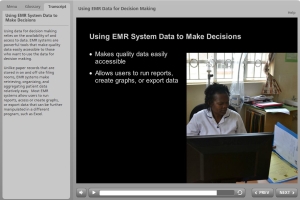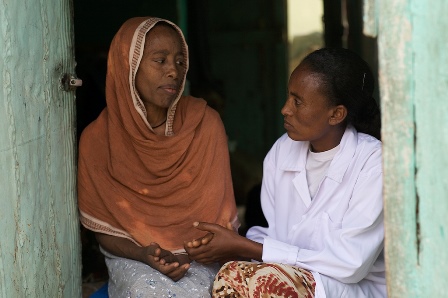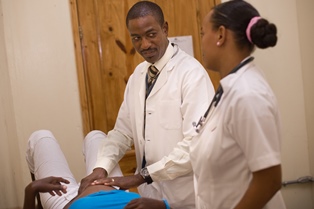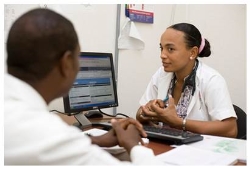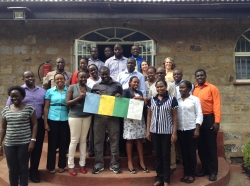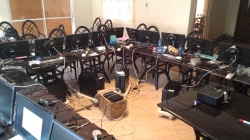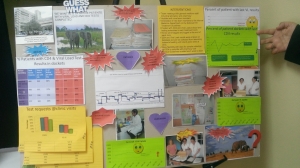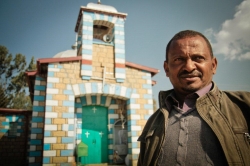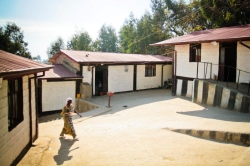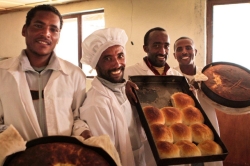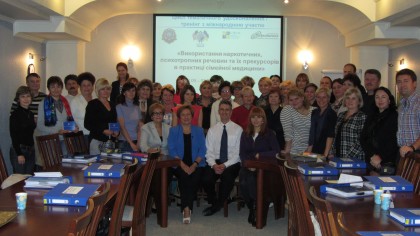
In June 2016, the academic and professional communities involved in training family physicians and general practitioners in Ukraine received another valuable guide to a highly sensitive topic.
The International Training and Education Center for Health (I-TECH) in Ukraine, the Ukrainian Family Medicine Training Center (UFMTC) at the Bogomolets National Medical University (NMU), and the International Renaissance Foundation, all under the auspices of the Ministry of Health (MoH) of Ukraine, published “Use of Narcotic, Psychotropic Substances and their Precursors in the Practice of Family Medicine.” This facilitator’s guide (published in Ukrainian) was developed by Ukrainian and international experts in the fields of palliative care, controlled drug use, and pain management.
“The uniqueness of this publication is its extremely topical and, until recently, understated issue in Ukraine: provision of medical care with the use of controlled drugs, including opioid analgetics,” said Kateryna Amosova, Rector of the Bogomolets NMU.
The guide incorporates recent, groundbreaking updates in Ukrainian legislation. Resolution #333 of the Cabinet of Ministers of Ukraine and Order #494 of the MoH legitimize primary health care providers to prescribe and manage opioids for pain management in palliative care and opioid substitution therapy (OST).
“I-TECH Ukraine was honored to be able contribute to the development of the in-service training course that promotes most progressive principles of palliative care and OST provision for patients, including those with HIV, tuberculosis, and other HIV-associated diseases,” said Anna Shapoval, Country Representative for I-TECH Ukraine. “As always, we express our profound gratitude to the Ministry of Health of Ukraine, HRSA of the U.S. Department of Health and Human Services, CDC in Ukraine, and the International Renaissance Foundation for supporting this project.”
The goal of this training curriculum is to provide participants with the skills and knowledge required to form competencies in applying narcotic, psychotropic substances, and their precursors in the practice of family medicine, specifically in combination with treatment of drug addiction, tuberculosis, and hepatitis.

The guide is based on the results of three pilot training events that took place in October through December 2015 in Uzhgorod and Kyiv. Dr. Chris Behrens, Clinical Associate Professor in the University of Washington’s Department of Global Health, co-facilitated the first event in Uzhgorod. Dr. Behrens also co-authored the guide, along with leading experts from the Bogomolets NMU, the Ministry of Internal Affairs of Ukraine, the National Police of Ukraine, the State Service of Ukraine for the Drug Use Control, the Ivano-Frankivsk Oblast Clinical Center for Palliative Care, the Kyiv and Kryvyi Rih City AIDS Centers, and the International Renaissance Foundation.
The course covers such essential themes as:
- The role of family physicians and primary health care facilities in using narcotic and psychotropic drugs and their precursors;
- Legal and organizational principles of applying narcotic and psychotropic drugs and their precursors in primary health care practice in Ukraine;
- Mental health; pre-conditions and types of opioid addiction; HIV/AIDS and other infectious diseases in IDUs; palliative and hospice care;
- Principles and use of opioid maintenance therapy in primary health care, including the patients living with HIV/AIDS; and
- Principles and use of narcotic and psychotropic drugs and their precursors in provision of palliative and hospice care, including patients living with HIV/AIDS.
The MoH of Ukraine recommends this guide as a tutorial for clinical interns and doctors enrolled in in-service or continuous medical education training programs, as well as for faculty of the Ukrainian medical universities and colleges that train doctors and nurses as general practitioners and family doctors. The guide has been already disseminated to about 60 medical universities and the largest medical colleges in Ukraine.

